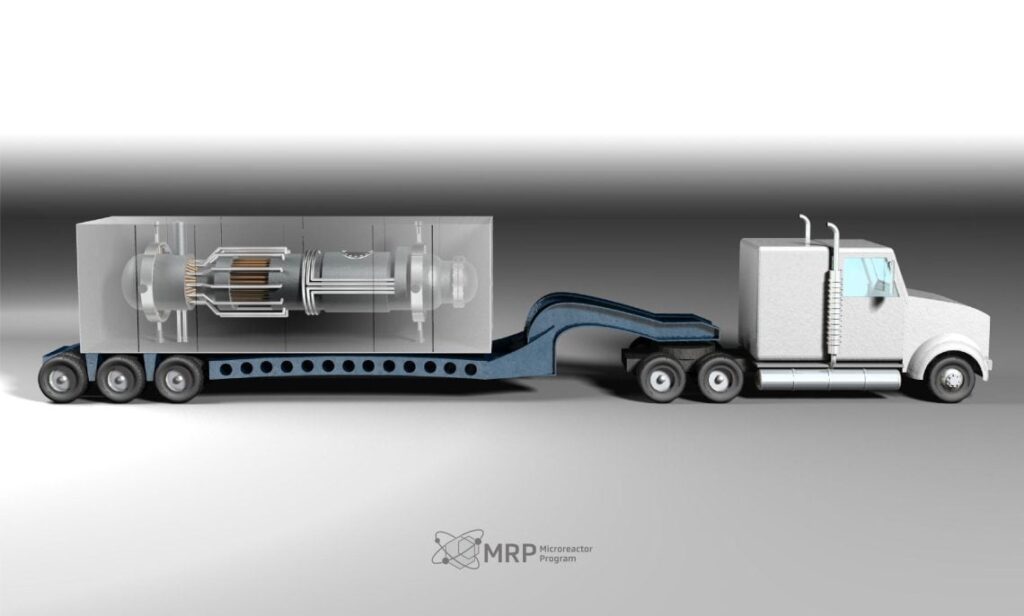Defense Daily
-
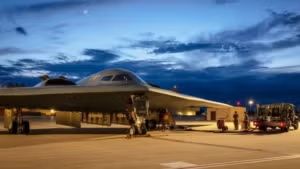 Air Force
Air ForceBoeing To Lead Tail Kit Development For Next Generation Penetrator, As USAF Seeks Industry Input
The attack division of the Air Force Life Cycle Management Center’s armament directorate (AFLCMC/EBD) at Eglin AFB, Fla., wants to hear from companies by December 12 on their wherewithal to […]
-
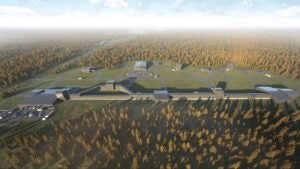 Business/Financial
Business/FinancialL3Harris Breaks Ground On Expansion Of Propulsion Facilities In Camden
L3Harris Technologies [LHX] on Tuesday broke ground on a new solid rocket motor production campus in Camden, Ark., part of the company’s ongoing push to increase its ability to meet […]
-
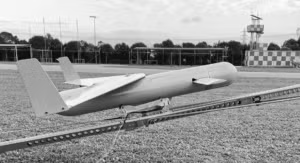 Business/Financial
Business/FinancialShield AI, Europe’s Destinus Partner On Collaborative Autonomy
Shield AI and Netherland’s-based Destinus on Wednesday announced a partnership to leverage Shield’s Hivemind mission autonomy pilot across Destinus’ unmanned aerial platforms with plans to conduct flight testing in 2026. […]
-
 Space
SpaceSpacecraft Mission Control Company Quindar Raises $18 Million For Classified Ops Center
Quindar, a small software company that has developed a spacecraft mission control platform, has raised $18 million in a new funding round to establish a classified mission operations center that […]
-
Wednesday, November 19, 2025
- DIU Solicits For Nuclear Power Plants; Army Selects Sites For Potential Deployments
- Pentagon CTO’s Trimmed Down List Of Six Critical Technology Areas Includes AI, Hypersonics
- Rocket Lab Launches HASTE Vehicle With MDA And DIU Payloads
- Army Details 4th ID’s Roadmap To Scale Up Work With NGC2 Prototype Architecture
- Ursa Major Raises $100 Million To Boost Production; Books More Than $115 Million In Orders In 2025
- NRO Establishes Space Cyber Program After Last Month’s Moonshine Guardian Exercise
- NNSA Awards Anduril $140 million For Counter-Drone Systems
- DHS Wants Satellite Volunteers To Test New Cyber Tools
- New National Space Cybersecurity Policy Emphasizes Intrusion Detection and Response
-
Wednesday, November 19, 2025
- DIU Solicits For Nuclear Power Plants; Army Selects Sites For Potential Deployments
- Pentagon CTO’s Trimmed Down List Of Six Critical Technology Areas Includes AI, Hypersonics
- Rocket Lab Launches HASTE Vehicle With MDA And DIU Payloads
- Army Details 4th ID’s Roadmap To Scale Up Work With NGC2 Prototype Architecture
- NRO Establishes Space Cyber Program After Last Month’s Moonshine Guardian Exercise
- Ursa Major Raises $100 Million To Boost Production; Books More Than $115 Million In Orders In 2025
- DHS Wants Satellite Volunteers To Test New Cyber Tools
- NNSA Awards Anduril $140 million For Counter-Drone Systems
- New National Space Cybersecurity Policy Emphasizes Intrusion Detection and Response
-
 Cyber
CyberNew National Space Cybersecurity Policy Emphasizes Intrusion Detection and Response
RESTON, Va.–A new national space cybersecurity policy updates the inter-agency Committee on National Security Systems Policy Number 12 (CNSSP-12) by emphasizing intrusion detection and monitoring among other elements. Chaired by […]
-
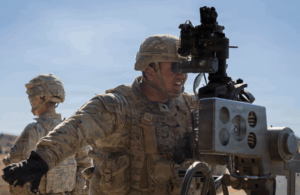 Army
ArmyArmy Details 4th ID’s Roadmap To Scale Up Work With NGC2 Prototype Architecture
The Army’s 4th Infantry Division is “on track” to have a division-level prototype of the Next-Generation Command and Control Architecture (NGC2) ready for its larger-scale validation effort at next year’s […]
-
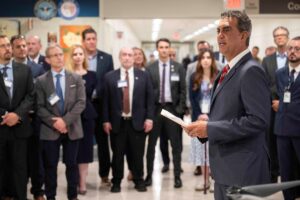 Pentagon
PentagonPentagon CTO’s Trimmed Down List Of Six Critical Technology Areas Includes AI, Hypersonics
The Pentagon’s chief technology officer (CTO) has trimmed down the department’s list of critical technology priorities to six categories, focused on artificial intelligence, information dominance, biomanufacturing, contested logistics, directed energy […]
-
 Missile Defense
Missile DefenseRocket Lab Launches HASTE Vehicle With MDA And DIU Payloads
Rocket Lab [RKLB] on Tuesday announced the successful launch of a suborbital mission using its HASTE launch vehicle with missile defense technology payloads operating for the Missile Defense Agency (MDA) […]
Tagged in:

